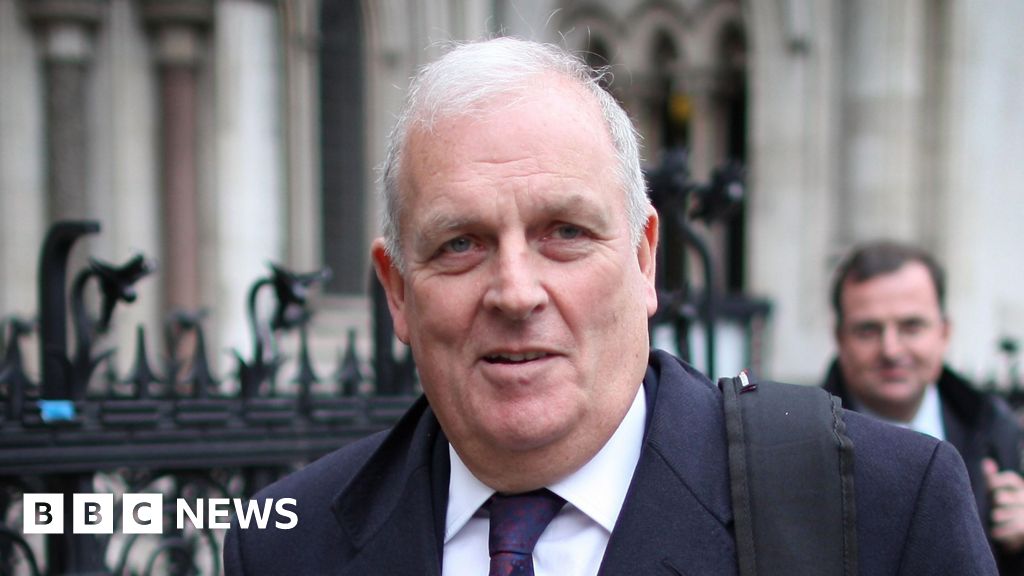The season-ending WTA Finals has concluded after being held for the second time in Saudi Arabia - a controversial move which has continued to be scrutinised.
At the inaugural event last year, the WTA and Saudi Tennis Federation (STF) insisted it would be a catalyst for change in a country criticised for its restrictions on women’s rights.
"Last year was a new tournament in a new market and it was successful, but this year we feel much more interest among the fans," Garbine Muguruza, the two-time Grand Slam champion who is the WTA Finals tournament director, told BBC Sport.
"The people in Saudi are more familiarised with tennis. They are curious about the sport and the event. It is going in the right direction."
For others, the Finals have not changed concerns about motives and money.
"While Saudi Arabia has invested heavily in entertainment and sports, including hosting the WTA Finals, these initiatives should not obscure the broader reality of women's rights in the country," said Bissan Fakih, a Middle East and North Africa campaigner at Amnesty International.
"Increased access to sport and entertainment is welcome, particularly for women and girls who were long excluded, but this image of progress contrasts sharply with ongoing repression and discrimination."
After the eight-day tournament finished in Riyadh on Saturday, BBC Sport analyses the impact the event is having.
The WTA agreed a three-year deal for Saudi Arabia to host a tournament which sees the eight leading women's singles players and best eight doubles teams of the season compete.
This year's total prize money of $15.5m (£12m) is the largest in women's sports history, says the WTA.
Many critics claim the investment into top-class sport is a move to gain legitimacy and deflect attention from controversy over Saudi Arabia's human rights record, a practice known as 'sportswashing'.
While there have been reforms – the ban on women driving, for example, was officially lifted in 2018 – concerns about the kingdom's suitability to host prominent women’s sport events remain.
"There continues to be gender-based discrimination in most aspects of family life, including in marriage, divorce and child custody," Fakih told BBC Sport.
The Saudi Tennis Federation (STF) was asked by BBC Sport to address these concerns during the WTA Finals, but did not make any of its officials available for interview.
Campaign group Humans Rights Watch say there is no evidence the WTA's presence is improving women's rights in Saudi, pointing to an "absence of action" in cases involving women imprisoned for advocating for change.
Manahel al-Otaibi, a fitness influencer and activist, is serving a five-year prison sentence for tweets supporting women's rights.
"The Saudi authorities continue to detain my sister while they persist in their charade of whitewashing their image and claiming to empower women in front of Western media," her sister Fawzia al-Otaibi told BBC Sport.
Al-Otaibi's other sister Mariam remains under a travel ban, while facing restrictions on her speech and access to government services, according to Humans Rights Watch.
"Seeing human rights defenders who were jailed and are still being imprisoned today - cases which were known before the WTA went in - is a good indicator of the lack of progress," Minky Worden, director of global initiatives at Human Rights Watch, said.
"It's clear the Saudi authorities don't feel any meaningful pressure to do anything."
Muguruza has visited the Kingdom several times since the Finals moved there, going into communities to visit schools and clubs with a focus of attracting more female tennis players.
From these experiences, she says the women she has met are "so happy" the event is taking place on their doorsteps.
Asked if she is fielding concerns about 'sportswashing', Muguruza said: "No, I don't think so.
"That was probably a conversation two years ago or something when people were more unfamiliarised with the sports here, but I think this is over.
"There are so many events here in sports and it has been very successful. I don't feel that, no."
The STF's ambition is getting one million people engaged in tennis by 2030 – meaning everything from playing to administration.
Last year it said there were 177 clubs and 14,000 women actively playing tennis, with then STF president Arij Mutabagani hopeful of increasing that.
Female participation in tennis has increased more than 24% since the 2024 WTA Finals, according to the STF.
It says 17,000 women are now actively playing tennis, part of more than 330,000 registered female athletes.
Female participation in all sport has increased from 14% in 2017 to 59% in 2025, according to figures provided by the STF.
Last year, the WTA Finals was notable for attracting sparse crowds to the 4,200-capacity King Saud University venue - with as few as 400 reported to have turned out, external on a day where Americans Coco Gauff and Jessica Pegula played.
While empty seats were evident this year, particularly in the early part of the week, there did appear to be a marked improvement in the attendances.
The STF has not provided daily crowd figures after being asked for the information by BBC Sport.
One source, who was at the event, said about 24,000 tickets were sold over the whole eight days.
Muguruza, in an interview conducted on Friday, said the semi-finals later that day and Saturday's final were sold out.
"There is always a couple of challenging days in the week, but [the crowds] have been bigger this year," she said.
"We had to start from scratch a little bit because tennis was not as popular here, but the fans now bring the banners and know the momentum shifts. The environment has been amazing."
The WTA's three-year deal to hold the Finals in Saudi Arabia expires after next year's tournament.
Incoming chair Valerie Camillo, who starts the role later this month, will be leading the discussion of where the nomadic event will be located in 2027 and beyond.
Her predecessor Steve Simon plugged a financial shortfall, caused by the suspension of events in China in response to accusations made by former doubles world number one Peng Shuai, by choosing cash-rich Saudi Arabia as its next host.
The Saudi Arabia investment has also provided a significant boost to the WTA's commitment to securing equal prize money at all combined Association of Tennis Professionals (ATP) and WTA tournaments by 2027 and all of its other top-tier tour events by 2033.
Camillo is acutely aware of the benefits brought by Saudi Arabia hosting the Finals and will discuss the issue with other key WTA personnel once in position.
WTA chief executive Portia Archer has already indicated she would like the event to remain in its current location.
"We signed on for a three-year term, we'd actually enjoy being here for even longer than we have been, or than we are agreed to be here," Archer told The Athletic last week., external

 2 hours ago
1
2 hours ago
1













































